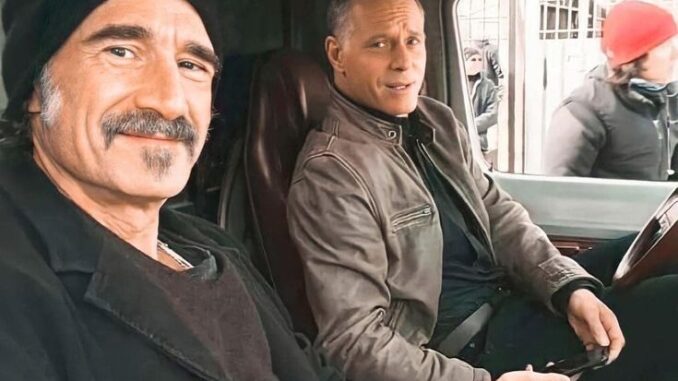
In the morally murky world of Chicago P.D., few characters dominate the screen the way Hank Voight does. Gruff, unpredictable, and driven by his own brand of justice, Voight isn’t just the leader of the Intelligence Unit—he’s the soul of the show. But what makes his character so endlessly compelling isn’t just his loyalty or his pain—it’s his constant battle with the one institution he can’t manipulate: Internal Affairs.
Voight’s war with IA has been a recurring thread throughout the series, and for good reason. He’s a walking contradiction—a cop who believes in justice but often dispenses it outside the law. That makes him a hero to some, and a threat to others. Especially to those whose job it is to hold officers accountable.
From early in the series, we learn that Voight isn’t just bending rules—he’s rewriting them. He’s buried evidence. Threatened suspects. Covered up crimes. But he doesn’t do it out of ego or thrill. He does it, in his mind, for the greater good. And that belief is precisely what makes him so dangerous—to criminals, yes, but also to the very system he swore to protect.
That’s where Internal Affairs comes in.
Voight’s most memorable clashes with IA have always come at moments of emotional intensity. Whether it’s trying to protect his team, avenge a fallen friend, or keep a secret buried, IA is the wall he can’t punch through. They operate in shadows, just like him—but they answer to a different master: bureaucracy, not instinct.
One of the most pivotal arcs in this conflict came when Voight was under investigation for the death of Justin’s killer—a crime he committed out of raw grief and vengeance. The man who murdered his son didn’t get a fair trial. He got Voight’s brand of justice—cold, immediate, final. But justice, in a city like Chicago, always comes with a price.
When Internal Affairs began circling, led by determined investigators unwilling to play Voight’s game, he didn’t run. He didn’t apologize. He did what he always does—he stared them down. But even the toughest man has his limits. Watching Voight try to protect himself and his team while carrying the unbearable grief of his son’s death was a masterclass in tension and character complexity.
Jason Beghe, who plays Voight, delivered some of his finest acting in those episodes. You could see the rage simmering beneath the surface, the unspoken question burning in his mind: How do you hold onto the badge when you’ve already lost everything?
Another key arc was Voight’s clash with Internal Affairs after the death of Alvin Olinsky. After Olinsky took the fall for a murder Voight committed, his death in prison broke something inside the team—but especially in Voight. And once again, IA was there, not just sniffing for wrongdoing, but challenging the very foundation of Intelligence. They saw Voight as a liability, a relic of a time when results outweighed procedure. And they were ready to take him down.
But what IA never truly understood was Voight’s strength—his unbreakable loyalty. His refusal to throw his team under the bus. His code, twisted though it may be, is built on sacrifice. Time and again, he took the heat to shield others. He may have crossed lines—but never alone. He never asked his people to do what he wouldn’t do himself.

This is where Chicago P.D. becomes more than just a cop show. It asks difficult questions. Is Voight a good man doing bad things? Or a bad man hiding behind noble causes? Can a system so broken afford someone like him—or is he the only thing holding it together?
These questions play out not just in interrogations or shootouts, but in quiet moments. Voight alone in his office. Voight at Olinsky’s grave. Voight staring down IA investigators with dead eyes and clenched fists. Each encounter is a chess match, but also a confession. He knows he’s not clean. But he also knows the city isn’t either.
And that’s what makes his relationship with IA so fascinating. It’s not just antagonism. It’s ideological warfare. IA believes in rules. Voight believes in results. Neither is entirely wrong. But both are trapped in a game where one misstep could end careers—or lives.
The brilliance of Chicago P.D. lies in its refusal to give easy answers. Voight doesn’t always win. There are investigations he barely escapes. There are times when his team suffers because of his choices. And yet, the show never fully condemns him. Instead, it lets the audience wrestle with the discomfort: What if the system doesn’t work without someone like Voight?
Fans have long debated whether Voight deserves redemption—or punishment. Online forums light up every time IA comes after him. Some cheer for his downfall. Others root for him to outsmart the bureaucrats yet again. But all agree on one thing: Voight is the show. And his struggle with Internal Affairs is where his character becomes most human.
Because behind the gruff voice and the brutal tactics is a man trying to carry the weight of a broken world on his back. A man who’s lost too much to believe in clean endings. A man who knows that every choice he makes might be the one that finally ends it all.
And yet—he keeps making those choices.
As of Season 12, Voight is still standing. Still being watched. Still defying the odds. But the pressure is growing. The world is changing. And sooner or later, even a man like Hank Voight may have to answer for everything he’s done.
